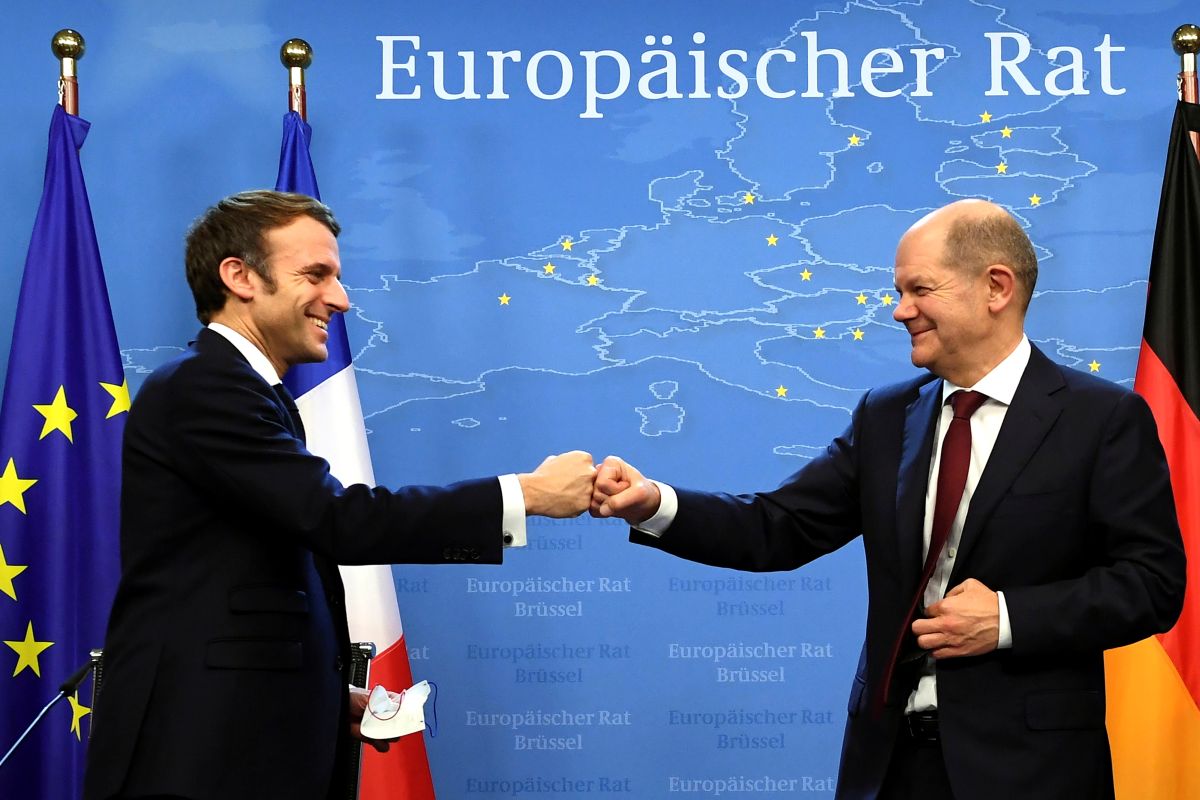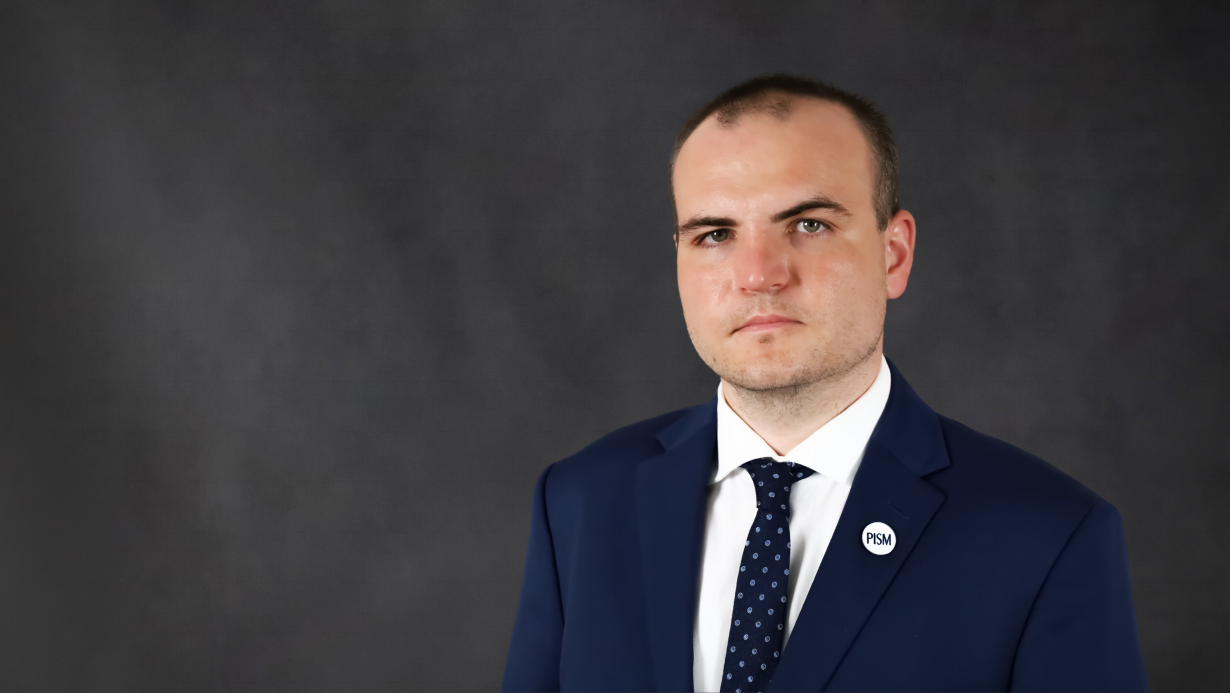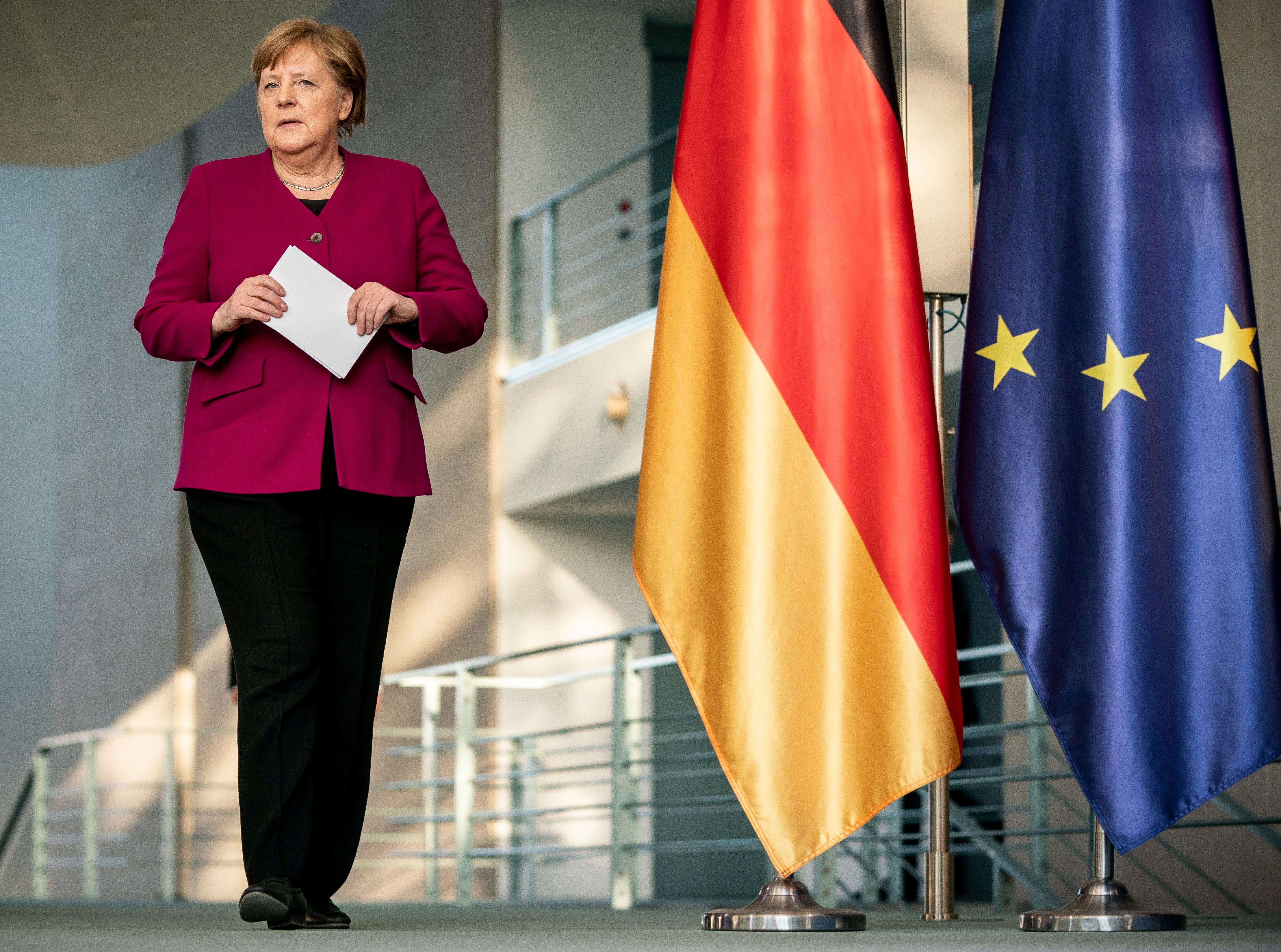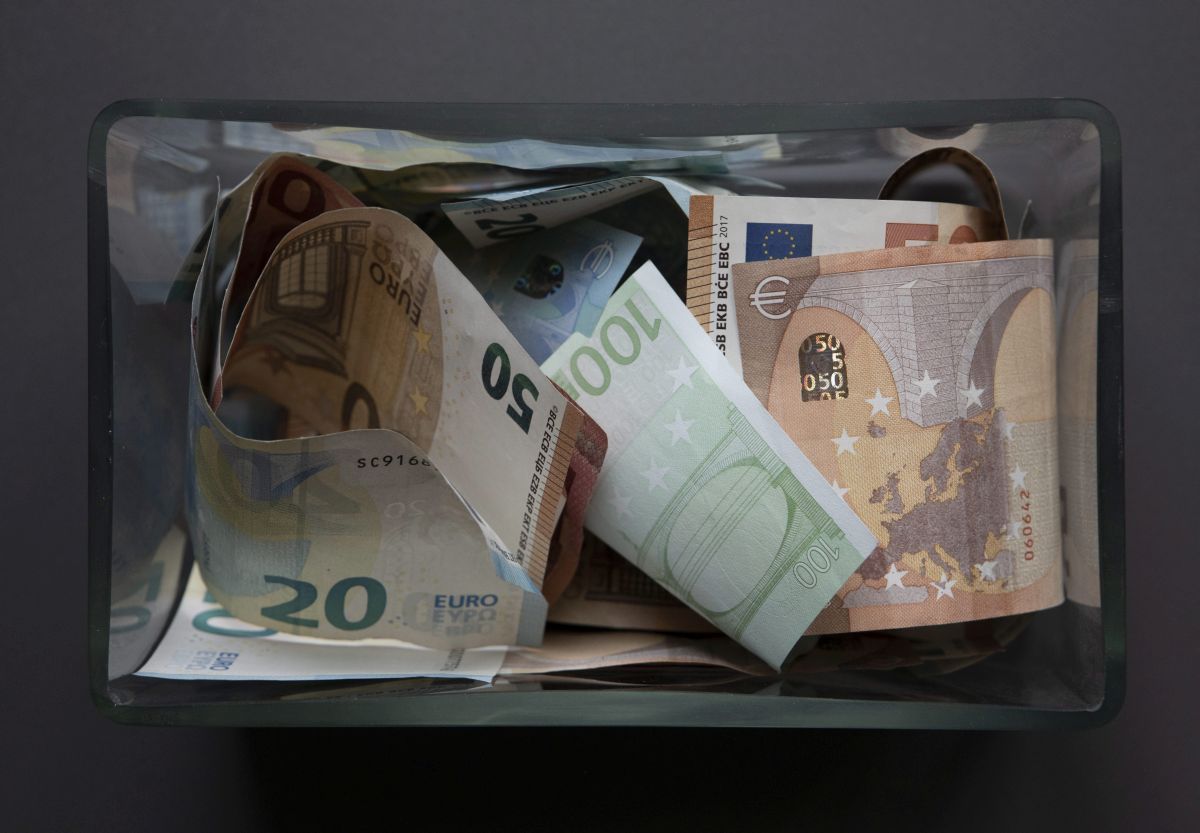An Open Tandem: France and the New Coalition in Germany
President Emmanuel Macron wants the Franco-German tandem to continue to inspire closer European integration. The diversity within the new ruling coalition in Germany and partnerships with other EU countries can make it easier for France to push through its interests in disputes (e.g., energy or budget policy). The durability of the Franco-German partnership will be tested by the presidential and parliamentary elections in France and the support of Olaf Scholz’s cabinet for the priorities of the French presidency of the EU Council.
 Fot. Reuters/ POOL/ FORUM
Fot. Reuters/ POOL/ FORUM
The Merkel Era and Macron’s Ambitions
From the beginning of his presidency, Macron recognised Franco-German agreement as the basis of his European policy. The French president saw the need to make these relations more dynamic, which was to be served by his EU reform initiatives. Some of Macron’s ideas, such as the postulate of a “multi-speed Europe” or a large eurozone budget, were met with scepticism by Angela Merkel’s government. He came to the conclusion, however, that a cooling of Franco-German relations would weaken France, and he persisted in striving to strengthen them. This was evidenced by the 2018 compromise Meseberg Declaration on reform of the EU and the Aachen Treaty in January 2019, which significantly deepened bilateral relations.
The COVID-19 pandemic provided an opportunity for the French authorities to convince Germany of the idea of a recovery plan based on shared debt. Macron also managed to popularise the topic of EU strategic autonomy and involve Germany in discussions about greater independence from the U.S. in security matters. The coming to power of the SPD-Greens-FDP coalition in Germany in autumn 2021 has force Macron to redefine common points in bilateral relations, which is not facilitated by the presidential campaign starting in France.
The New Chancellor and the French Europe
The will to maintain close Franco-German relations is confirmed by the visit of Foreign Minister Annalena Baerbock (9 December) and Chancellor Olaf Scholz (10 December) to Paris. For both politicians, these were the first foreign visits after taking office. Macron said he wanted his personal relationship with the new Chancellor to be as good as that with Angela Merkel. The contacts made at the time when Scholz was Minister of Finance in Merkel’s cabinet and supported common debt as a method of financing the recovery plan were of significant importance in this context.
Macron wants to use the agreement on the recovery plan, as well as the favour of the SPD and the Greens towards deepening European integration, in order to gain Germany’s support for his budget demands. First of all, it is about the reform of the Maastricht criteria and the Stability Pact, announced as part of the programme of the French presidency of the EU Council, including in particular the departure from the 3% limit on budget deficits. The French authorities also want to be free to help their industry increase its chances on global markets. In a press conference following an interview with Scholz, Macron suggested that European industry could be subsidised by a large eurozone budget and an investment plan based on shared debt. As for Scholz, due to disagreement with the coalition FDP on this matter, he did not refer directly to the French postulates, stating only that economic growth and healthy public finances were not contradictory values. The joint letter from Macron and Italian Prime Minister Mario Draghi published on 23 December 2021, proves the strengthening partnership between the two countries and also can be seen as pressure on the German Chancellor to reform the budgetary rules.
France also hopes that the SPD-Greens-FDP coalition will be more enthusiastic than its predecessors towards the concept of EU strategic autonomy. The bases for the discussion are the ambitions of building European federalism and “strategic sovereignty” contained in the German coalition agreement. In addition to political support, Macron also expects that Germany will continue to increase defence spending and that the modernisation of the Bundeswehr will be based on European technologies, including as part of programmes jointly implemented with France (e.g., the FCAS air-combat system). The presence of the Green party in the coalition raises concerns in France that the new government will adopt a policy of reluctance towards foreign military missions (e.g., in Africa) and arms exports to authoritarian states.
Another goal of France will be to establish, in cooperation with Germany, a common political position of the EU towards the U.S., Russia, and China. Although France recognises the threats resulting from Russia’s possible military aggression in Europe, its presence in Africa, and China’s expansionist stance in the Indo-Pacific, France will strive to maintain dialogue with these countries, fearing that the EU will be excessively dependent on the U.S. Germany’s support for the French concept of a European Security Council and the development of the EU’s military structures would be a significant asset. Macron can also expect that Germany and France will jointly demand that their role be taken into account in the ongoing Russian-American talks related to Russian President Vladimir Putin’s latest demands. Both countries also support the abolition of the unanimity requirement in voting on security and defence in the EU Council. Moreover, France wants the accession of the Western Balkan countries to the EU to be the end of the enlargement process, so it may demand joint declarations from Germany on this matter.
Bilateral Agenda
From the point of view of Macron’s electoral interests, relations with Germany can be an uncomfortable topic of domestic politics in France. The party of the French president is alone in positively assessing its dynamics in recent years. According to the right (National Rally, some Republicans, and likely presidential challenger Eric Zemmour), Macron has sacrificed the interests of French industry for good relations with Germany, which translates into a high foreign trade deficit (€80 billion in 2020). For the left, (Indomitable France of Jean-Luc Mélenchon, the communists, some socialists, and the greens), Macron’s compliance with budgetary discipline and Germany’s reluctance to stimulate domestic investment are problematic. A new factor is Valérie Pécresse’s start as a Republican candidate. Pécresse favours close cooperation with Germany, and would even be an easier partner for Germany in budgetary and fiscal matters than Macron.
Most French parties consider German energy policy harmful to France. Germany’s departure from nuclear energy, which was one of the pillars of bilateral cooperation, was particularly badly received. The Scholz government’s objection to including nuclear energy in the EU’s “green taxonomy” can be used by Macron’s rivals to attack his policy based on the tandem with Germany. If Germany assembles a blocking minority against the EU’s nuclear energy proposal, Macron’s defeat will be all the more evident, as he himself—in return for a compromise with Merkel on French nuclear—was reserved in criticising the Nord Stream 2 gas pipeline, which is harmful to the EU.
Conclusions and Prospects
During the French presidency, Macron intends to suggest to the German government that the future of the Franco-German tandem depends on his re-election. The dynamics of the Franco-German cooperation may come to a halt if an opposition candidate wins. To prevent this, Macron expects Germany to make concessions on budget discipline, strategic autonomy, and the role of nuclear energy. However, the strong candidacy of Pécresse, favourable to cooperation with Germany, limits Macron’s ability to play his own “no-alternatives” in the EU.
The difference in views between France and Germany on energy policy increases the importance of Central Europe and Poland for France. Poland, however, has not expressed a clear position on the postulates of reforming the EU’s budgetary and economic rules raised by France and a group of southern EU countries. It is especially in Poland’s interest to emphasise the need to continue cohesion policy and warn against the risk of loosening the rules for granting state aid (disturbance of market freedoms and competition). The importance of the Polish voice in this discussion is limited by remaining outside the eurozone and the conflict with the EU institutions over the approval of the National Recovery Plan.
France expects Germany to make greater efforts to modernise and develop its own armed forces and, at the same time, to agree to distance the EU’s security policy from NATO’s goals. The first factor is favourable for Poland, the second is not. The Weimar Triangle is the appropriate format for articulating the Polish position. Poland and Germany, unlike France, remain champions of strong transatlantic cooperation. It is also in Poland’s interest to make partners aware that an insufficient response to Russia’s aggressive actions in Europe will compromise the idea of strategic autonomy in the eyes of many EU countries.





